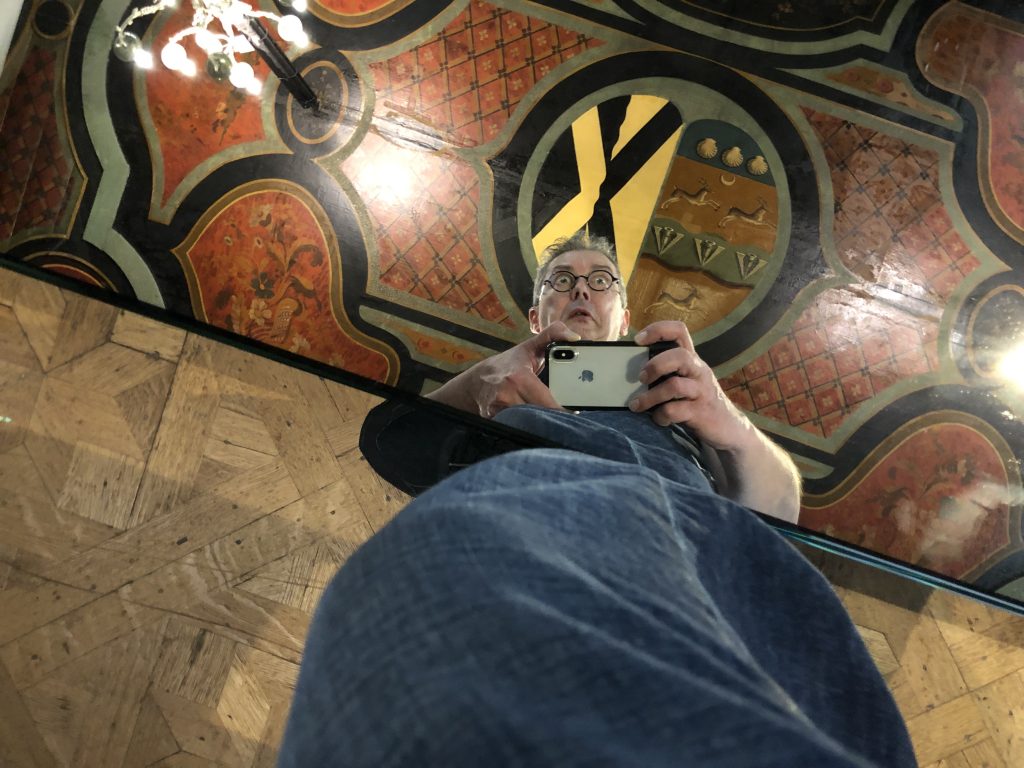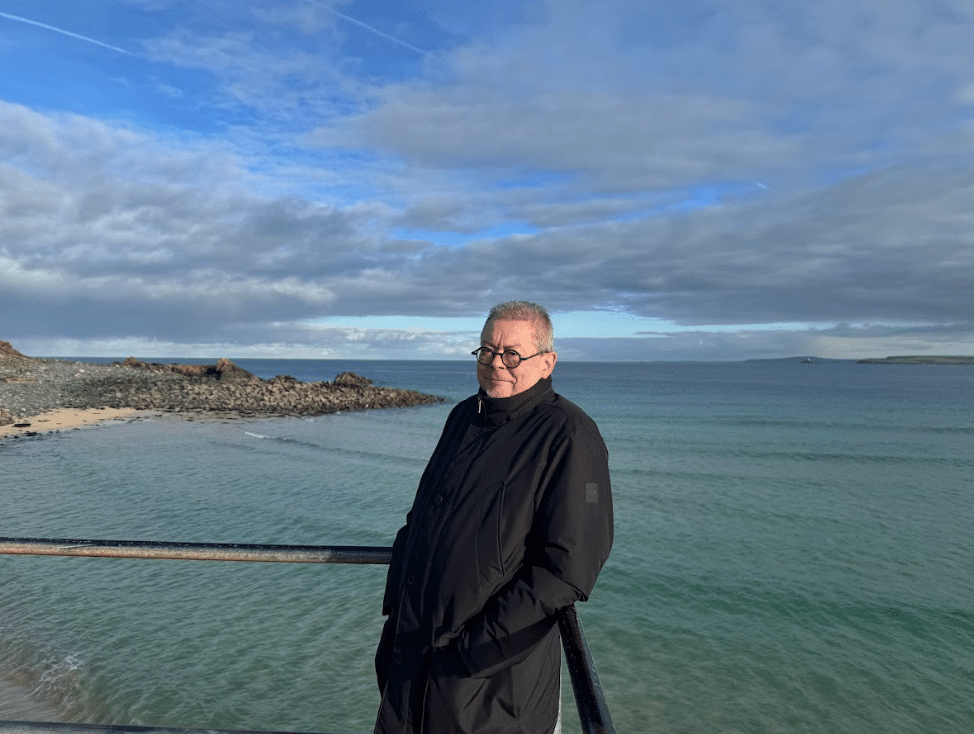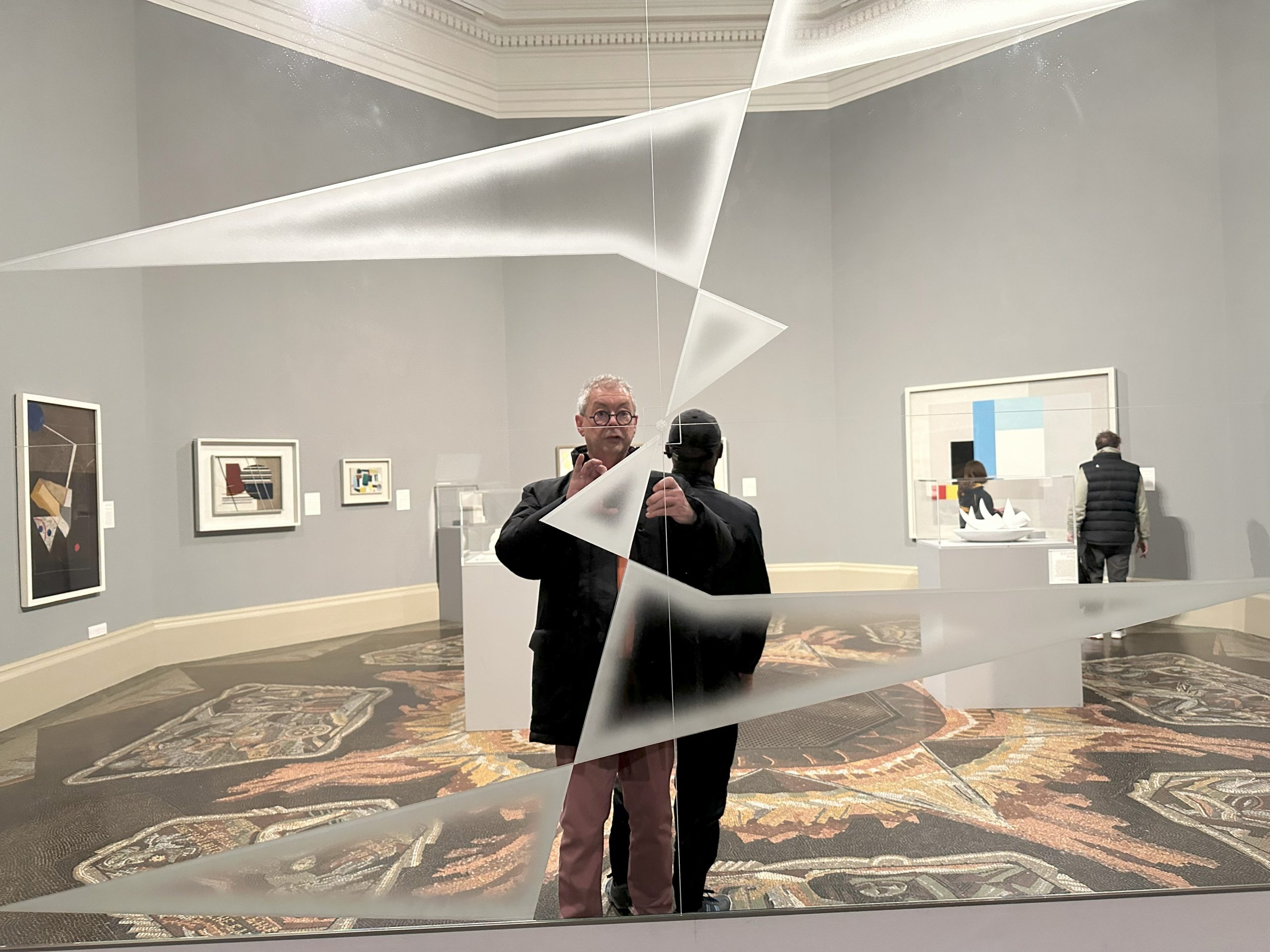
And You
At the source lies the I of the poet who cannot keep his mouth shut. Theater used to be written or sung by poets as well. Unlike poetry, theater is a collective event, where lots of selves are around the corner. Poetry now comes to us mostly through letters on paper, or on the screen, but you can also listen to it.
Unlike theater, poetry is a one-on-one conversation. There is only you and me and the text between us. The poem is a new self that, in a nutshell, hopefully speaks to your self, through written or spoken language. Every poetic text contains a subject, a subject, that acquires its own, third self. It is always about something, or something is told, which begets a fictional self, standing between me and you.
Take a poem about a volcano. Then that volcano becomes an I. An acting subject. Poetry and theater are closely related on historical and literary grounds. It’s about addressing and singing, with the difference that poetry is so language-based, for lack of images. Someone takes the floor and another listens. Or someone writes, another reads.
The reader, the other I, lets what’s been presented sink in. He or she is for the poet, besides an I, also a second person: a you or a You. I speak to you. I address you, I hopefully appeal to you. That is the most primary dramatic triangle: the I of the poet, the I of the reader, who is also a You, and the fictional I of the piece at hand.
It doesn’t stop there. Between every two I’s that meet, a form of tension always arises, especially in theater, where the interaction between the characters, who all bring an I, gives rise to ever new, secondary dramatic triangles, which each time form a scene or a part of it.
It soon becomes complex as more selves populate the field. Then you usually do well to leave the narrator’s self, and the listener’s self, out of the picture, to concentrate on your subject. I mean, you don’t want to get the director in the middle of the film telling you how difficult it was to make the film, do you?
That maker must stay out of view so as not to break and unmask the fiction. That gives the reader the opportunity to identify with the fictional I.
Latest contributions
Back from the road – Florida
Florida Was Wonderful I don’t love America as a power, but I adore Americans. The way they interact with each other—we cold Northern […]
The Coast of Cornwall
The Coast of Cornwall Cornwall is a place you do not easily forget. Along the rugged coastline, where the ocean crashes against the cliffs, a unique […]
Self-Portrait in Tate St Ives
Self-Portrait in Tate St Ives Tate St Ives is a leading museum of modern and contemporary art, located on the rugged coast of Cornwall. The museum is […]
Alle auteurs
- Olivier Lichtenberg
- A Magical-Realist Portrait of Erembodegem, a Belgian village
- ADHD
- Advice from the doctor
- African poetry
- AIDS activism and gay emancipation
- Bibliography of Chris
- Bibliography of Olivier
- Bibliography of Patrick
- Biography of Chris
- Biography of Olivier
- Biography of Patrick
- Blackout poetry
- Blogs
- Chris' Stage
- Columns
- Covid
- Dirk van Babylon Newsletter
- Double calling
- Essays
- Fragile light
- Hanna's Mind Wanderings
- Incapacity for work
- Late Pasquino's
- Lectures
- LEIF doctor
- Liechtensteiner
- Medical newsletter
- Memoirs of a general practitioner
- Miguel Molinos
- Moctines
- Musings
- Myriad
- Patrick's Stage
- Practice in Erembodegem
- Resignation
- Short Stories
- Sleep problems
- Sonnets
- Sprawl Month
- Substance abuse and addiction
- Synchronicities
- Travel
- Uncategorized
- Vi to
- Vögels
- Voluntary euthanasia
- Weltschmerz
- Wormwood or The dose makes the poison
Over de auteur
Other works by our writers
- February 2026 (1)
- December 2025 (2)
- November 2025 (1)
- October 2025 (6)
- September 2025 (4)
- August 2025 (5)
- July 2025 (2)
- March 2025 (3)
- December 2024 (10)
- November 2024 (6)
- October 2024 (3)
- February 2021 (3)
- January 2021 (5)




No comments have been posted yet!